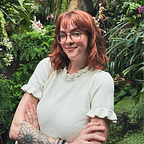Art In Revolution: The Life and Activism of Mahmoud Darwish
Mahmoud Darwish was a Palestinian poet and author of over 30 poetry books and eight books of prose. He was regarded as Palestine’s National Poet during his lifetime, with Runir Akash noting “as much as [Darwish] is the voice of the Palestinian Diaspora, he is the voice of the fragmented soul.” Darwish’s work is an important representation of Palestinian identity and culture, and continues to be one of the foremost Arabic poets in history.
Darwish was born 1941 in al-Birwah, Palestine to land-owning parents. In 1948, Zionist militias invaded his village, forcing Darwish and his family to flee to Lebanon. The following year, Darwish and his family returned to their village to find it completely demolished, moving instead to Deir al-Asad, over 15 kilometers away from the land they previously owned and prospered on. As Palestinians who missed the official Israeli census, Darwish and his family were considered “internal refugees,” cementing their status under occupation as less than the illegal settlers that occupied their homeland.
As a child, Darwish received an invitation to read a poem during Israel Independence Day, and he read a piece that reflected on the irony of Palestinians being forced to celebrate Israeli independence. The next day, Darwish was brought to the governor alone at twelve years old, in order to be scolded for his poetry. “The incident made me wonder,” Darwish said in an interview with Bomb Magazine in 2002. “The strong and mighty state of Israel gets upset by a poem I wrote! This must mean that poetry is a serious business.”
Darwish’s early work focused on his unhappiness with the occupation of his native land. While this work aligned with traditional Arabic poetry, it evolved to include more symbolic and abstract themes. Darwish used Palestine as a metaphor for the Garden of Eden, a symbol of dispossession and exile.
Darwish faced imprisonment in the 60s for reciting his poetry and traveling between villages without a permit. Later, after his poem, Identity Card, had been turned into a protest song, authorities placed Darwish on house arrest. He would spend the next years of his life alternating between house arrest and imprisonment before leaving the country in exile in 1970.
Starting in 1987, Darwish was active in the Palestinian Liberation Organization, or PLO. He wrote both the 1988 Algiers declaration, where the PLO expressed support for a two-state solution, and the Palestinian Declaration of Independence. Darwish also worked as an editor for the monthly journal and, later, director of the group’s research center. In opposition to the Oslo Agreement, Darwish resigned in 1993.
After leaving for college in Moscow in 1970, Israel barred Darwish from being able to return to the country. Darwish lived in exile until 1996, mostly between Beirut and Paris. In 1964, Darwish released his first collection of poems, Leaves of Olives, in Beirut.
Darwish has written poetry regarding his different relationships with the Israelis. Some, like the soldiers occupying his town or his jailers, are some of his worst enemies. Others, like his long-term lover, or friends, were some of his best friends. After the 1967 war, Darwish wrote a poem called A Soldier Dreaming of White Lilies, when an Israeli friend fled the country after returning home from the horrors of the front.
The impact of Darwish’s poetry on the Arab world would have long-lasting implications. His work helped shape a national Palestinian identity. With Darwish, Arabic poetry evolved from lyrical, rhyming stanzas to a more revolutionary form of poetry full of symbolism and metaphors.
Darwish has won multiple international awards, such as the Lannan Cultural Freedom Prize, Lenin Peace Prize, and the Belles-lettres Medal from France. His work, translated into over 22 languages, has made him one of the most celebrated poets of the Arab world. Worldwide, Darwish brought attention to Palestinian stories of occupation, displacement, and exile. Arabic readers all around the world consider him a “savior of the Arab language” because of the popularity of his work.
Mahmoud Darwish passed away in August 2008, at age 67, after heart surgery complications. He lives on through his poetry, as well as the influence he had on Palestinian statehood and identity. Darwish’s voice reaches all corners of the world, serving as a critical reminder of the reality of military occupation and apartheid.
References:
